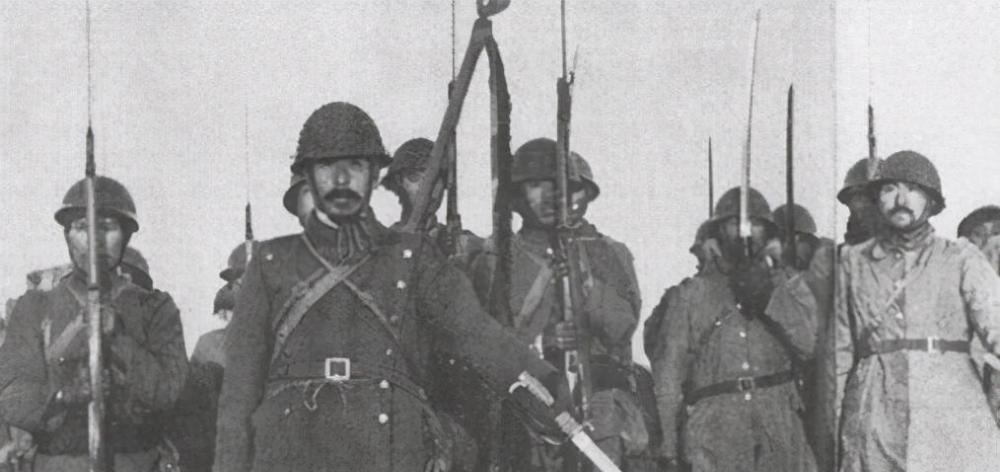The War of Resistance Against Japanese Aggression was an extremely arduous war of anti-aggression in Chinese history, in which the Chinese paid a terrible price in order to resist the aggression of Japanese imperialism. Throughout the War of Resistance Against Japan, China suffered more than 35 million casualties and hundreds of millions of ordinary people lost their homes, but after the end of the entire War of Resistance Against Japan, the kind Chinese only punished a small number of Japanese prisoners of war and did not retaliate against the Japanese grass-roots Japanese army with those weapons.

Chinese people's kindness and benevolence did not make the Japanese feel guilty and accused, after the victory of the War of Resistance, there were Japanese people who once again took up the butcher's knife and waved it at the kind Chinese people, and the Tonghua incident was a more typical incident. Tonghua is located in the northeast of China's border Changbai Mountain, where resources are abundant, transportation is convenient, especially the military position is very important, into the Songliao Plain, retreat can rely on the Changbai Mountain natural danger to defend. During the War of Resistance Against Japanese Aggression, Generals such as Yang Jingyu and Wang Fengge were killed in this place.
After the September 18 Incident, the Japanese army gathered a large number of troops, weapons and ammunition here. At the end of the War of Resistance Against Japanese Aggression, the Soviet Union's 1.5 million Red Army attacked the Kwantung Army entrenched in northeast China, but the Kwantung Army resisted and moved its headquarters to Tonghua, and the capital of puppet Manchukuo was also moved to this place. After the victory of the War of Resistance Against Japanese Aggression, a certain unit of the Northeast Democratic Coalition Army, which was mainly reorganized from the Eighth Route Army, was stationed in Tonghua and disarmed tens of thousands of Japanese troops in the city. Subsequently, important units such as the Liaodong Provincial Cpc Committee, the Artillery School, the Northeast Military Academy University, and the Northeast Aviation School also moved into Tonghua.
When Tonghua was just liberated, the Kuomintang side was not willing to accept the occupation of this strategic place by the People's Liberation Army, so it sent agents to collude with bandits outside the city to attack the Northeast Democratic United Army, and the Northeast Democratic United Army sent out the main troops to suppress the bandits, and the troops in the city were very empty.
On the night of February 2, 1946, a few hours before the Japanese prisoners of war launched a riot, a complacent agent leaked the news, and the Northeast Democratic Coalition Army quickly took action, captured a secret service leader, executed some traitors, and ordered the main force to return to reinforcements. In the early morning of February 3, the first day of the Chinese New Year, before dawn, tens of thousands of Japanese thugs brandished katana, wooden sticks, and a small number of small arms and launched an attack on the Tonghua Administrative Office building, public security bureau, airport, artillery school and other units.
Although the officers and men of the Northeast Democratic Coalition Army left behind in the city made certain preparations, they still suffered heavy losses. The Japanese medical staff of the Japanese hospital that was taking in at the time also participated in the riot, killing all the wounded Chinese soldiers. Before the riots began, the Northeast Democratic Coalition Army transferred more than 100 commanders of the Kwantung Army to the place of detention, but still leaked the news, was besieged by the Japanese army, only one squad guarded the prisoners of war, the squad leader decisively ordered that more than 100 Japanese commanders be killed, and then concentrate fire against the Japanese mob.
Xia Junqing, the secretary general of the administration building, commanded the soldiers and engaged in a fierce battle with the Japanese mob, and commissioner Jiang Yaquan shot the guards who threatened him to surrender (which had been countered). After the Japanese mob captured the second floor, the military and political personnel guarding the building also engaged in a fierce white-knife battle with the mob. In the most urgent situation, the Tonghua detachment of the Northeast Democratic Coalition Army, as well as the Korean Volunteer Army, entered the city to support, quickly calmed the situation, and in the subsequent suppression activities, killed more than 4,000 Japanese thugs.